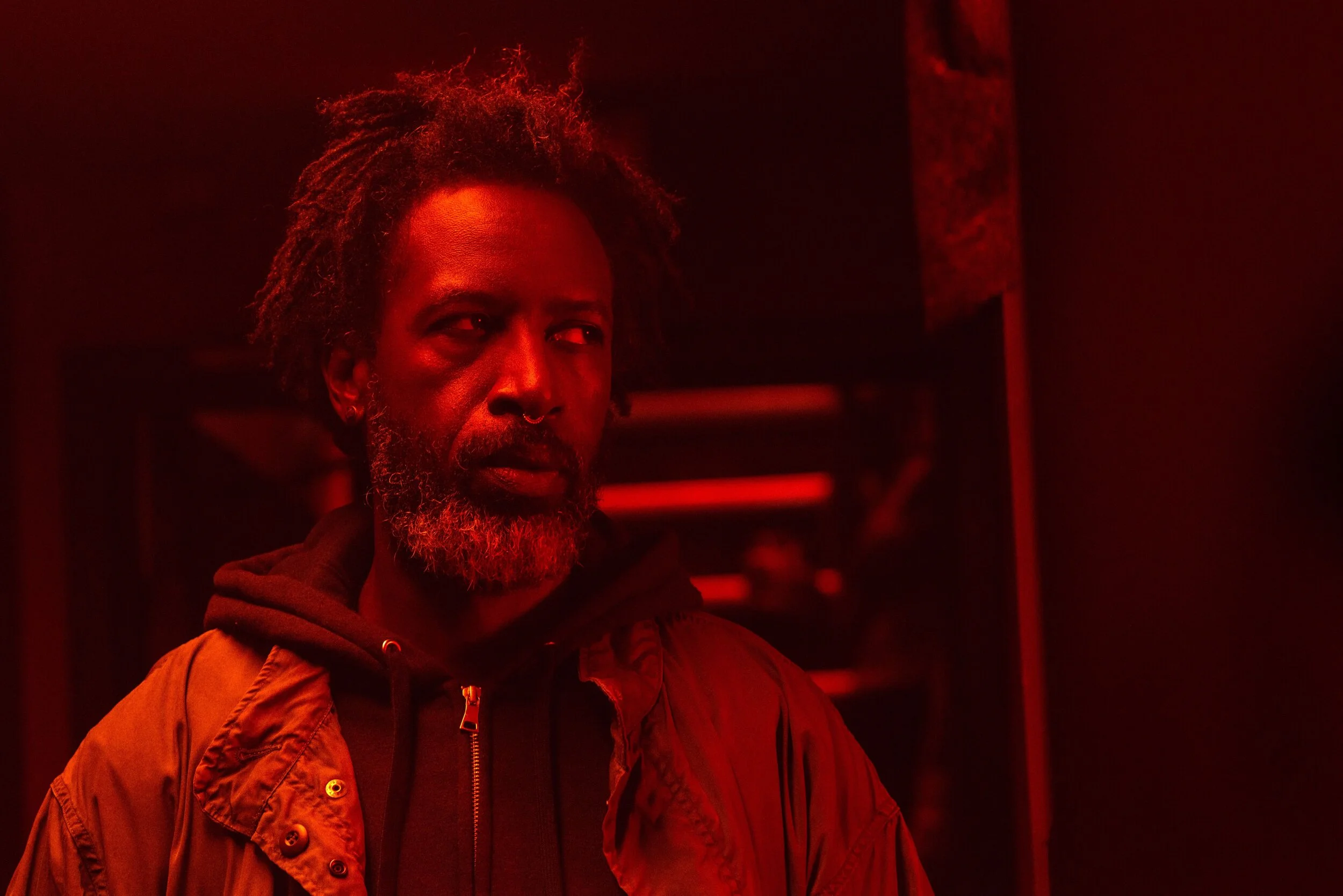Akilla's Escape: Charles Officer's solid generational crime film offers a night of violent redemption for a career criminal
By Jim Slotek
B-plus
The notion that violence lives forever if we let it, casts its shadow over Akilla’s Escape, the welcome return of Charles Officer (Nurse.Fighter.Boy) to feature drama after more than a decade.
In fact, the first scene is practically a tutorial, a history of gang warfare in Jamaica that is both separate from the story it eventually tells, and an establishing motif.
A fast-moving noir, partly set in Toronto, it’s essentially the story of one redemptive act in the life of a career-criminal/drug supplier named Akilla (New York slam poet Saul Williams, who also contributed to the soundtrack with Massive Attack’s Robert Del Naja).
Saul Williams is a career criminal with one last chance for redemption in Akilla’s Escape.
Akilla is set to get out of the business for various reasons, the surface one being the imminent legalization of cannabis in Canada. This does not set well with his crime-boss patron Athena (Theresa Tova), nor his longtime “business” partner Benji (Colm Feore).
But there’s other stuff boiling underneath, a deeply buried past that escapes as a flood of memories, following the events of a botched drug deal.
Masked raiders, whom Akilla recognizes as young and inexperienced, intervene in the deal, leading to violence and to Akilla having de facto custody of Sheppard (Thamela Mpumlwana), a scared teen who is on the same apparent path that Akilla once was.
Sheppard is even involved with the same gang, the Garrison Army, that previously ensnared both Akilla and his brutal father Clinton (Ronnie Rowe), and, by extension, his abused mother (Olunike Adeliyi).
PROUDLY SUPPORTS ORIGINAL-CIN
Akilla’s Escape tells another story at this point, set in Brooklyn in the ‘90s, about indoctrination with almost sociopathic undertones. Clinton gives warlike lectures to his teen son (also played by Mpumlwana) about what it means to be a man – paving the way for a job as a Garrison “runner,” and a lifetime of crime to follow.
It may seem like gilding the lily, narratively, to have the kid who reminds 40-year-old Akilla of himself be played by the same young actor who, in fact, plays the young Akilla. And it is confusing for a minute. But once you get used to it, it works metaphorically.
Given the accelerated pace of a 90-minute movie whose main narrative happens in one night, Williams gives a powerfully controlled performance, creating a character whose awareness level is high. Physically, Akilla is set on simmer until violence becomes necessary (as it does, once people start demanding their missing money and go after the ones who took it).
The dual narratives, cross-connections and social subtext notwithstanding, Akilla’s Escape is a fairly simple criminal redemption story. The save-a-child-to-save-your-soul with an expectedly violent last act.
Akilla’s Escape. Directed by Charles Officer. Written by Charles Officer and Wendy Motion Brathwaite. Starring Saul Williams, Thamela Mpumlwana and Ronnie Rowe. In theatres where open. Available on VOD Tuesday, June 15.



